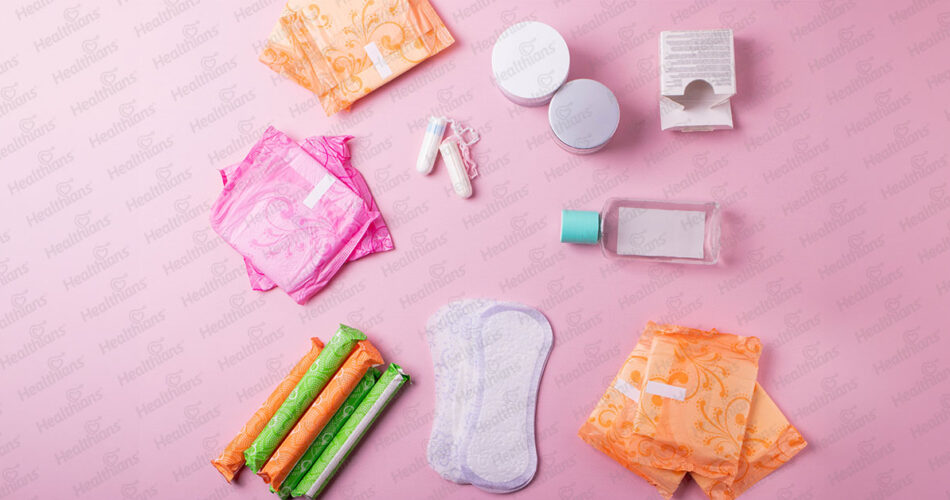Menstruation is a natural part of the reproductive cycle, but the taboo, myths, ignorance, and shame connected with the subject, particularly in cultures where it is stigmatized, continue to impede women’s ability to manage their menstruation with dignity and hygiene. This can have a profound impact on a woman’s health. When menstrual blood is not properly managed and cleanliness is impaired, it can lead to significant health problems. If left untreated, it might progress to severe complications.
This blogpost summarizes the impacts of poor menstrual hygiene on a woman’s health:
Impacts of poor menstrual hygiene
Itching, rashes, foul odour in the vaginal area
Irritation and itching in the vaginal area in girls and women of menstruating age are caused mainly due to unhygienic menstrual practices. Prolonged contact with menstrual blood, improper cleaning of external genitalia, and washing with merely water can cause serious discomfort and can irritate the mucosal area. Longer use of any sanitary product can cause rash, swelling, itching, hives, and red, flaky patches. In addition, poor-quality sanitary products with inadequate absorbency and breathability, can invite fungal infection.
Increased risk of infection
Infection is one of the most obvious consequences of inadequate menstrual hygiene. According to studies examining the relationship between menstruation management and health consequences, wearing the same pad for 8-10 hours during periods can produce a breeding environment for germs and other hazardous microorganisms. Infections such as bacterial vaginosis, dermatitis, yeast infections, and urinary tract infections can result from this. Similarly, failing to wash hands after changing menstruation products might result in illnesses including hepatitis B and thrush. These infections can be serious and even fatal in some situations. Untreated bacterial infections, for example, can result in sepsis, a potentially fatal illness.
Long-term reproductive health issues
Poor menstrual hygiene can also wreak havoc on a woman’s reproductive health and cause various reproductive health morbidities. Studies indicate that poor menstrual hygiene is responsible for almost 70 percent of reproductive health illnesses in Indian women. Using soiled sanitary napkins or not changing sanitary napkins at regular intervals can lead to the development of illnesses such as pelvic inflammatory disease (PID) or endometriosis, which is a painful and sometimes debilitating condition that can impact fertility.
Risk of cervical cancer
Unhygienic handling of menstrual waste can cause the risk of cervical cancer. According to World Health Organisation data, India accounts for 27% of all cervical cancer fatalities worldwide. This rate is about double the global average, and physicians studying the disease believe that poor menstrual hygiene is the leading cause.
Psychological and social impacts
Poor menstrual hygiene can have psychological and social consequences in addition to physical health consequences. Women who are unable to manage their menstrual hygiene may experience feelings of shame or embarrassment, leading to feelings of isolation and low self-esteem. Furthermore, cultural taboos around menstruation can lead to discrimination and exclusion, especially in contexts like school or the workplace.
The way forward
To address the issue of poor menstrual hygiene, it is important to:
Prioritize education and awareness
Due to misinformation and lack of basic knowledge, many women may not be aware of the risks associated with poor menstrual hygiene. By providing education on menstrual hygiene and ensuring access to affordable and sustainable menstrual products, we can help to reduce the risks and impacts of poor menstrual hygiene.
Providing access to resources
Women may not have access to the resources they need to manage their periods safely and hygienically. By providing access to safe and affordable sanitary materials to manage their menstruation, we can help reduce chances of infection.
Reducing the stigma and shame surrounding menstruation
In addition to education and access, it is also important to work to reduce the stigma and shame surrounding menstruation. By promoting open and honest discussion about menstruation, we can help to reduce the feelings of shame and embarrassment that may prevent women from prioritizing their menstrual hygiene.
Closing thoughts
In conclusion, poor menstrual hygiene can have a range of negative impacts on a woman’s health, from infections and reproductive health issues to psychological and social impacts. By prioritizing education and access to menstrual products, as well as reducing period stigma, we can help to ensure that all women are able to manage their menstrual hygiene safely and hygienically. This is not only important for women’s health, but for their overall well-being and quality of life.
Book The Full Body Health Checkup Today




